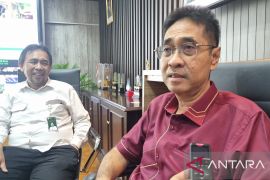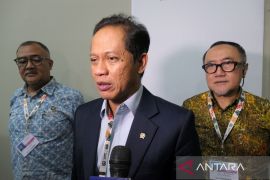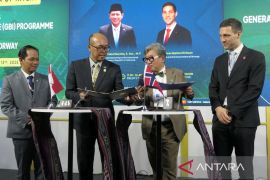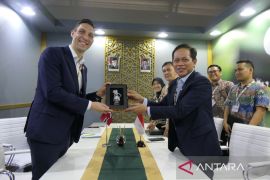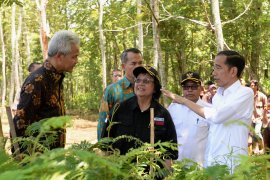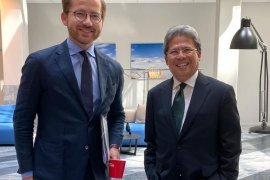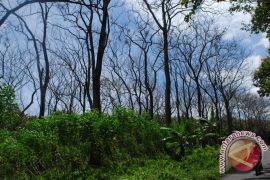The launch of RBC-4 was carried out by the President's Special Envoy for Climate Change and Energy, Hashim Djojohadikusumo; Environment Minister Hanif Faisol Nurofiq; Forestry Minister Raja Juli Antoni; and Norwegian Ambassador to Indonesia and Timor-Leste Rut Kruger Giverin.
"Today's event is to launch the Emission Reduction Contribution phase 4 as a continuation of the good partnership between Indonesia and Norway within the framework of the FOLU Net Sink 2030 cooperation," Nurofiq noted in a written statement from the Environment Ministry on Thursday.
He explained that RBC-4 includes funding of US$60 million for Indonesia for the achievement of reducing greenhouse gas emissions in the 2019-2020 period. He remarked that the funding follows in the footsteps of the previous RBC-3 payment phase.
He remarked that RBC-1 received a payment of US$56 million for reducing emissions of 11.2 million tons of CO2e in the 2016-2017 period, while the RBC-2 and RBC -3 payments were made simultaneously, namely US$100 million for reducing emissions of 20 million tons of CO2e in 2017-2019.
According to Nurofiq, the payment proves Indonesia's strong commitment to establishing cooperation, collaboration, and collective action to face global environmental challenges.
Forestry Minister Raja Juli Antoni stated that the RBC-3 funding had earlier been distributed for various activities to achieve the 2030 FOLU Net Sink goals.
"Among other things, it includes sustainable forest management, carbon sequestration, biodiversity conservation, and law enforcement," he stated.
He affirmed that the payment resulted from discussions initiated since 2022 under the leadership of Environment and Forestry Minister Siti Nurbaya Bakar.
Antoni highlighted that since September 12, 2022, Indonesia and Norway had agreed on a new partnership to support Indonesia's efforts to reduce greenhouse gas emissions from the forestry and other land use sectors.
He stated that the cooperation encompassed reducing emissions from deforestation and forest degradation by protecting and managing forests through community participation, including indigenous people.
The partnership also covered increasing capacity to strengthen the absorption of natural forest carbon through sustainable forest management, forest rehabilitation, and social forestry.
Furthermore, conserving biodiversity, reducing greenhouse gas emissions from peatland fires and decomposition, and strengthening law enforcement also fall under the realm of cooperation.
In the same statement, Giverin emphasized Norway's pride in the sustainability of the partnership with Indonesia, which has led to and provided an example of efforts to reduce emissions from deforestation.
"And I think Norway and Indonesia are now showing a very good example of how Western countries and countries with a lot of rainforest can work together to address the climate challenge," he remarked.
Related news: Indonesia, Norway seek stronger synergy in forestry decarbonization
Related news: President Jokowi, Norwegian minister discuss cooperation, palm oil
Translator: Cindy Frishanti Octavia
Editor: Anton Santoso
Copyright © ANTARA 2024

